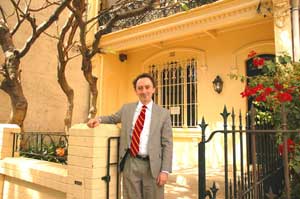Large study shows torsade risk remote and ECG non-predictive in methadone maintenance.
Bart G, Wyman Z, Wang Q, Hodges JS, Karim R, Bart BA. Methadone and the QTc Interval: Paucity of Clinically Significant Factors in a Retrospective Cohort. J Addiction Medicine pre-publication 2017.
Dear Colleagues,
Dr Bart and co-authors have examined the medical records of around 1000 admissions to methadone maintenance nearly all of whom had at least one ECG on or off methadone (or both). They then compared clinical cardiac events and mortality over 7000 patient years from the major health facility in Minneapolis. There was an average increase in QTc of 13 milliseconds in those on methadone at the time of the ECG, consistent with other studies. This was associated with a very low rate of cardiac events of 2.5 per 1000 and QTc intervals were not predictive. Sudden cardiac death (SCD) rate was lower than age-adjusted community rates (0.4 versus 1.75 per 1000 based on CDC state statistics). This parallels numerous other reports attesting to the general protective value of being on methadone treatment (see Krantz ref below on cardiac protection). No case of torsade des pointes was identified by the present authors over 15 years.
This study gives great reassurance in the cardiac safety of methadone maintenance treatment. The authors also suggest that the requirement for ECG in methadone patients should be reviewed since it does not appear to serve any practical purpose. A Cochrane review also found no evidence to support QTc screening.
Concerns over the supposed dangers of QTc prolongation have been over-played, partly by commercial factors favouring the only licensed alternative to methadone maintenance. Of about 150 torsades cases reported in the literature since 2002 only one was fatal to my best knowledge.
A paper by Mori Krantz from Denver in 2002 claimed to have found an extraordinary number of tachycardia cases from Colorado methadone clinics and a pain management service in Canada. Torsade des pointes was reported as a side effect of methadone yet Krantz’s findings have never been replicated elsewhere, even in large samples of closely studied patients over 30 years of research literature. In the present series by Bart and colleagues not one case was identified in 7000 patient-years. About 150 anecdotal reports in the literature since 2002 shows this rare event occurs mostly in high-dose, complex methadone patients who were taking other medications, were over 40 years of age and with a higher rate in female patients. My own practice with approximately 3000 patient-years has identified one single torsade case (non-fatal). Alcohol and pre-existing heart disease were also associations in this aging population. Krantz’s claim that methadone was associated with large numbers of otherwise unexplained deaths has also never been supported by the literature (Byrne, Stimmel. Lancet 2009*).
Notes FYI by Andrew Byrne, Sydney, Australia. https://ajbtravels.blogspot.com.au/
Reasons for cardiac protection by Mori Krantz (2001): http://www.redfernclinic.com/c/2008/11/dr-mori-krantz-on-cardiac-protections_8506.php4
Krantz on cardiac concerns from the following year (no mention of the balancing protections above): Krantz MJ, Lewkowiez L, Hays H, Woodroffe MA, D. Robertson AD, Mehler PS. Torsade de Pointes Associated with Very-High-Dose Methadone. Ann Intern Med. 2002 137:501-504 http://www.annals.org/cgi/reprint/137/6/501
*Byrne A, Stimmel B. Methadone and QTc prolongation. Lancet 2007 369:366 http://www.thelancet.com/journals/lancet/article/PIIS0140673607601810/fulltext
